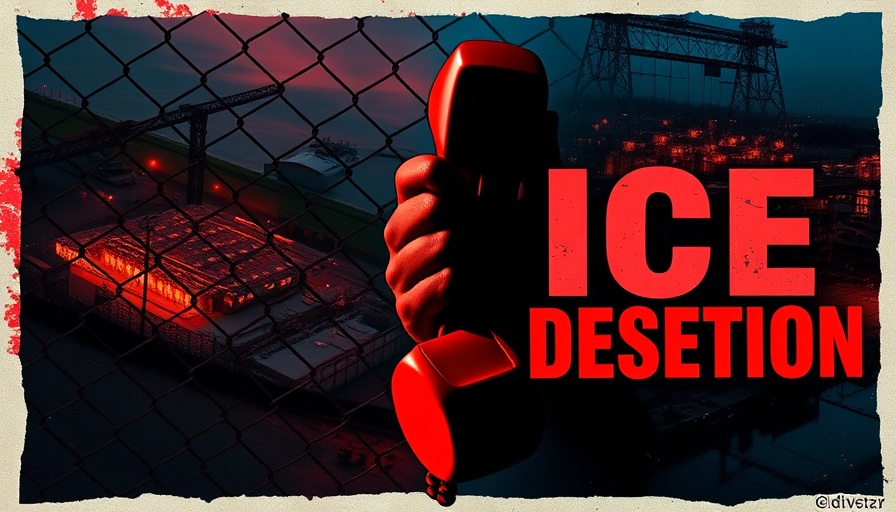
Inside the Chaos: Emergency Responses in ICE Detention Centers
Recent investigations have unveiled grave issues within the U.S. Immigration and Customs Enforcement (ICE) detention system, highlighting a surge in medical emergencies and systemic failures. A series of troubling 911 calls from these facilities demonstrates a harrowing reality where life-threatening incidents, delayed medical treatment, and a general atmosphere of neglect converge.
Rising Medical Crises: The Statistics Tell a Disturbing Tale
WIRED's review of emergency call data from ten major ICE detention centers illustrates a stark increase in serious medical issues. Over 60% of these facilities have reported incidents involving pregnancy complications, suicide attempts, and sexual assault allegations. Since January, almost 400 emergency calls from these centers have been logged, with significant numbers indicating cardiac episodes and seizures—hinting at an overwhelmed system.
A Frightening Lack of Resources
The case of a pregnant detainee at the Aurora ICE Processing Center encapsulates the inadequacies in medical support provided. Despite the urgency, the facility was ill-equipped to monitor vital signs adequately, raising questions about the care provided to detainees. Similarly, a language barrier exacerbated an emergency call from the Stewart Detention Center, where a detainee struggled to communicate her distress, underscoring a failure to meet basic communication needs.
The Hidden Truth: Ignored Emergencies and Underreporting
Many experts warn that the actual number of medical emergencies is likely much higher than reported, as the data only reflects incidents that resulted in 911 calls made by staff, often under the pressure of dire situations. Furthermore, a third of calls contained vague explanations or omitted critical details, suggesting a systematic failure in transparency and diligence.
Societal Implications: What This Means for Human Rights
This crisis within ICE detention raises crucial questions about human rights, safety, and ethical treatment of individuals in custody. Facing extreme overcrowding, detainees are subjected to environments where their health and safety are not prioritized. The alarming rates of self-harm and violence in these centers call for immediate governmental scrutiny and reform.
Highlighting the Role of Advocacy Groups
Advocacy organizations have become essential in amplifying the voices of those impacted by these conditions. By collaborating with immigration attorneys and policy experts, they work to bring attention to these issues, pushing for reforms in detention center policies and emergency response protocols.
The Future of ICE Detention and Medical Policy
The implications of these findings are far-reaching. Experts predict increased advocacy for policy changes that emphasize humane treatment and adequate medical care for detainees. With public pressure mounting, there is hope that reforms may lead to improvements in both health care access and overall conditions in ICE facilities.
Confronting the Challenges Ahead
Tackling the systemic issues within ICE detention centers is not only a question of healthcare but also reflects larger societal values about human rights and ethics. Stakeholders, from policymakers to ordinary citizens, must engage in discussions regarding how to handle immigration and detention with empathy and respect for human dignity.
In light of this analysis, ongoing advocacy and reform are vital. Urging representatives to focus on humane treatment within immigration policies could significantly impact the experiences of thousands in detention centers.
 Add Row
Add Row  Add
Add 




Write A Comment